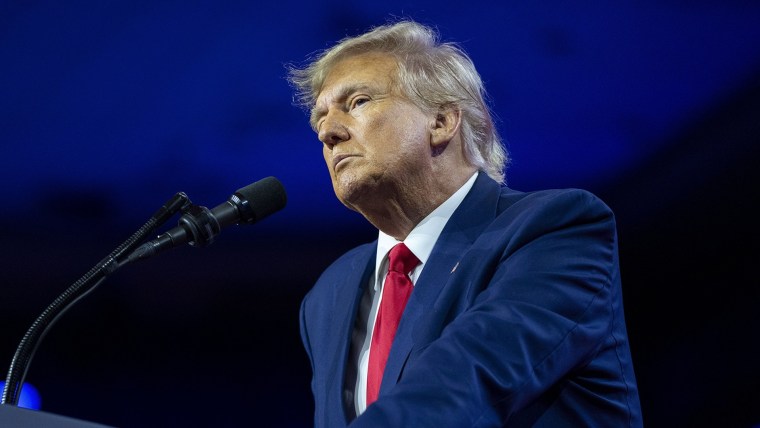[ad_1]
Former President Donald Trump routinely overstated his personal net worth to financial institutions by as much as $2.2 billion one year, or 38.5%, New York Attorney General Letitia James’ Office alleged in a filing Wednesday.
The figures, tucked into a 100-page motion for partial summary judgment, are the latest details in a sweeping $250 million civil lawsuit James brought against Trump, some of his eldest children and the Trump Organization last year. The lawsuit details alleged efforts spanning ten years to inflate the former president’s personal net worth to attract favorable loan agreements.
In court papers filed in state Supreme Court on Wednesday, prosecutors requested that the court rule in favor of the Attorney General’s Office on only the first cause of action they brought against Trump last year, which argued that the former president and some Trump Organization employees used financial statements as a “vehicle” to fraudulently inflate his net worth by billions of dollars annually between 2011 and 2021.
In Wednesday’s filing, prosecutors said that defendants had “falsely inflated by billions of dollars” the value of various assets listed on Trump’s annual statement of financial condition — his own personal financial report card — which falsely puffed up his overall net worth.
According to calculations submitted by prosecutors, Trump routinely overstated his personal financial condition by between 17% to nearly 39% from 2011 to 2021, and he overstated his personal financial condition by 17% to 31% while in office.
During his first year in office, prosecutors allege that Trump overstated his personal wealth by over $1.1 billion dollars and subsequently overstated his financial condition by $1.9 billion in 2018.
Trump, and at times trustees of his revocable trust, repeatedly provided these statements to financial institutions to secure and maintain more favorable loans and insurance, “reaping hundreds of millions of dollars in ill-gotten savings and profits,” prosecutors wrote.
They urged the court to consider “two simple and straightforward questions,” namely, whether Trump’s statements of financial conditions from 2011 to 2021 were “false or misleading” and whether defendants “repeatedly or persistently” used the documents to conduct business transactions.
Prosecutors argue that affirmative answers to both questions should prompt the court to resolve the matter in their favor prior to trial.
The filing details how the former president overstated his wealth by valuing properties at amounts that “significantly exceeded professional appraisals of which his employees were aware and chose to ignore.”
In one instance, they argue that Trump valued undeveloped land at his golf course in Aberdeen, Scotland, based on an assumption that he could build and sell more residential homes than approved by local authorities.
Meanwhile, in the case of his leased property at 40 Wall Street, Trump at times valued the property “at more than twice the appraised value,” they wrote.
Trump also inflated the value of his triplex apartment at Trump Tower by nearly tripling its actual square footage, an error that they argue “inflated the apartment’s value by approximately $100-$200 million each year from 2012 to 2016.”
An attorney for Trump did not immediately respond to a request for comment on Wednesday. Trump has denied wrongdoing in the case, calling it a “witch hunt.”
The civil trial on the other counts is slated to begin in October.
[ad_2]
Source link


